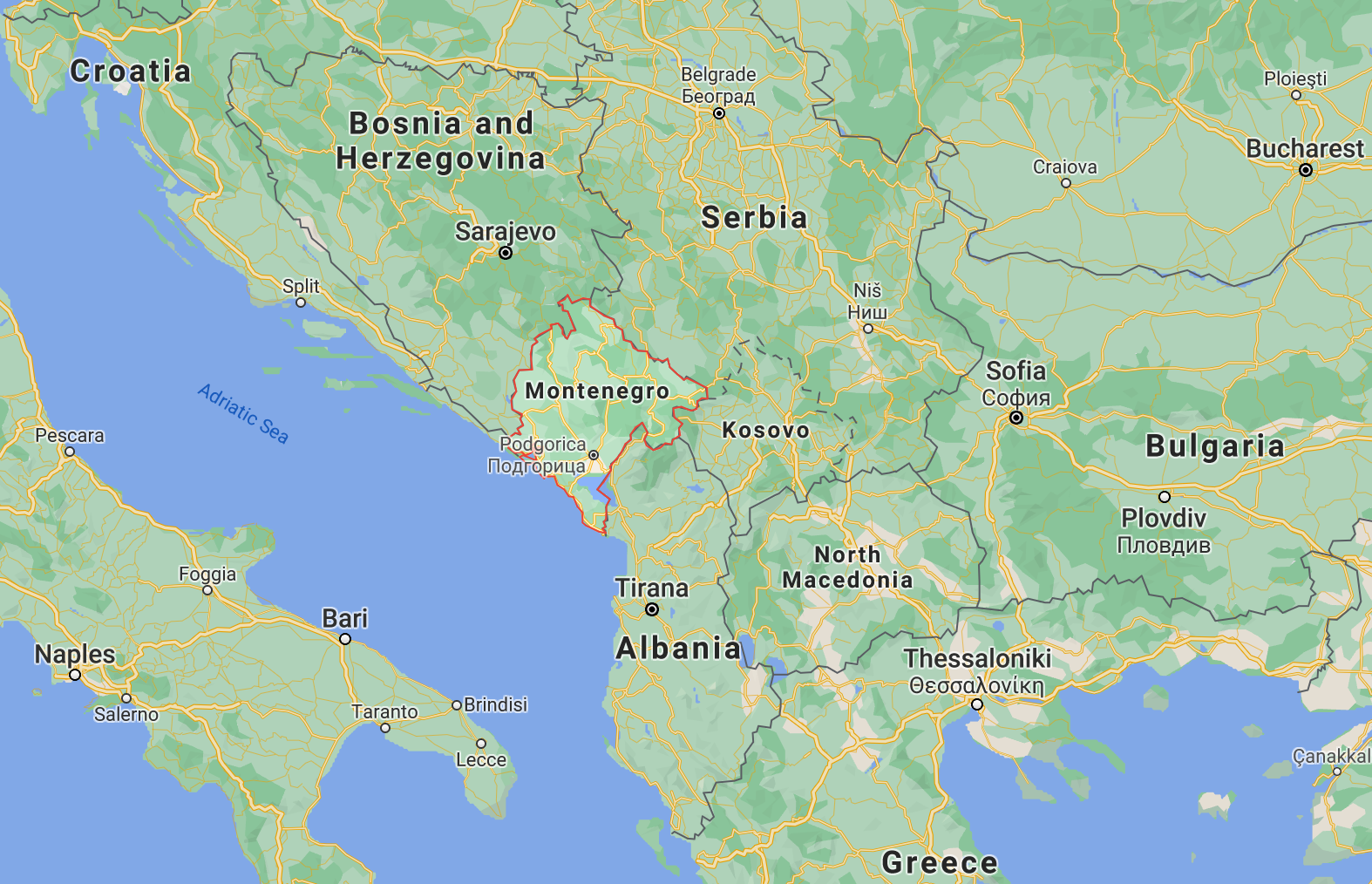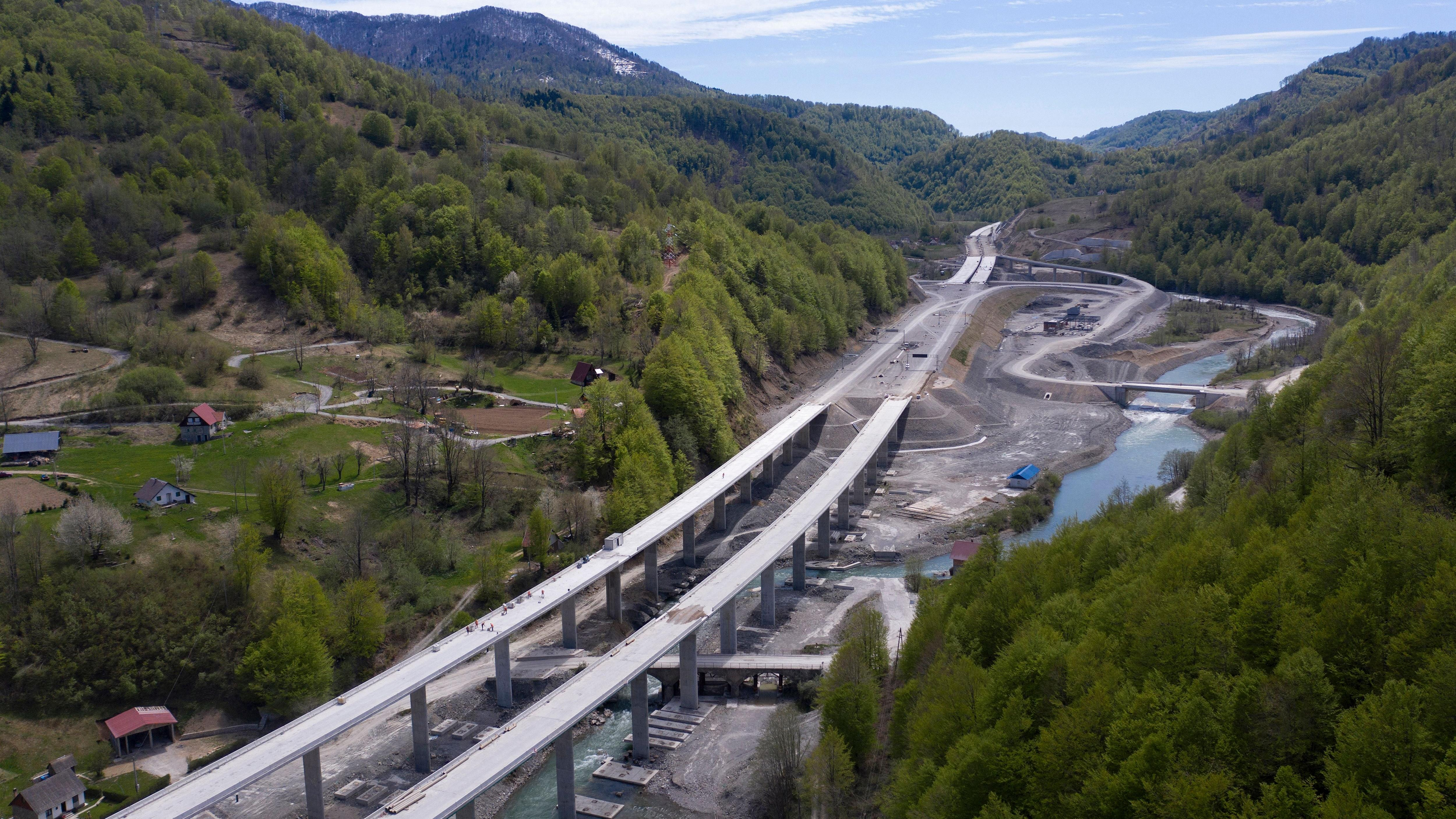Highway To Nowhere Drives Entire Country Deep Into Debt
"We make a joke: it's a highway from nothing, to nothing."
The small country of Montenegro might go broke all thanks to the last government's shortsighted decision to take out Chinese loans to hire a Chinese company to build a freeway. Now there isn't enough money to complete the road or pay back the loan, and the envisioned 270-mile freeway may remain an uncompleted stretch in the Montenegrin countryside.
Montenegro has a $1 billion loan out with the Chinese state bank, Export-Import Bank, that it can't pay. Before you go running to your Googles, I'll just go ahead and show you where Montenegro is right now:

The country's leaders took out the loan in order to pay for a Chinese state-owned company to build a freeway that would connect the Montenegro port Bar to the Serbian capitol Belgrade. Construction on the first 25-mile stretch is currently wrapping up, but the nation's leaders say they have no way to pay for the freeway's first stretch, which currently ends in a small remote mountain village, much less the entire 270-mile roadway, according to NPR:
The first installment of the $1 billion loan from a Chinese state bank is due in July, and it's unclear whether Montenegro, whose debt has climbed to more than a 100% of its gross domestic product due to this project, will be able to afford it. What's worse, says the country's former Justice Minister Dragan Soc, once completed, the road won't lead anywhere anyway. "We make a joke: It is a highway from nothing to nothing," he says.
[...]
Montenegro's government says the first section put it in so much debt that it can no longer afford to build the rest of the highway. "I think we will pay not maybe this generation, but future generations," says Soc, the former justice minister. "But I don't think this is a problem from China. It is our bad decision."
The last government in Montenegro made a lot of bad decisions, it turns out. The contract the country signed with China that allows China to seize land in Montenegro over unpaid debts and allows a Chinese court to have final say on the execution of the contract. In other words, Montenegro is completely boned.
You may be wondering why China is building such a beautiful road to nowhere in a Balkan country in the first place. Montenegro has wanted to build this freeway for years, but couldn't get European backing because they were afraid (well-founded it seems) Montenegro couldn't repay the debt, despite the country hoping to join the EU someday. Enter China and its Belt and Road Initiative (BRI), which seeks to increase the country's influence in other countries by funding vital infrastructure work. Not only does BRI build up infrastructure in less developed nations and give China's construction companies something to do as building slows down at home, but such infrastructure allows Chinese-backed companies to extract the natural resources from those nations more efficiently. (This is not greatly different from how colonizer nations built roads and railways in Africa: as cheaply as possible, to extract natural resources as easily as possible.)
Now that Montenegro is struggling under the weight of that debt, the EU still doesn't want to step in and help, effectively ceding influence in the region to China, policy researchers told NPR. Think tanks, academics, and political operators in the West and Africa have long feared that BRI accounts for China's first steps into becoming a colonial power. That, or the planet's premier creditor. China purchased the Greek port of Piraeus, for instance, and now has a presence in 39 African countries, for instance through BRI according to the international think tank the Lowy Institute.
The rest of the world is catching up, however. The G7 countries pledged earlier this month to spend "hundreds of billions" on infrastructure loans for underdeveloped countries in order to compete with China, from Business Insider:
Wang Wenbin, China's foreign ministry spokesperson, said of the G7 plans, "Ganging up, pursuing bloc politics, and forming small cliques are unpopular and doomed to fail."
Biden's White House was calling the initiative "Build Back Better for the World," expanding on Biden's 2020 campaign tagline of "Build Back Better." An official called it "B3W" as a shorthand.
The White House and its G7 partners have "long been skeptical about China's Belt and Road Initiative," a second senior administration official said.
"We've seen the Chinese government demonstrate a lack of transparency, poor environmental and labor standards, and a course of approach that's left many countries worse off," the official said. "But until now, we haven't offered a positive alternative that reflects our values, our standards, and our way of doing business."
Analysts tell NPR that now that Montenegro's leaders have gone silent on the debt, China is likely working with official to restructure the loan. All this intense international wrangling over a road to nowhere in a little country by the sea.
